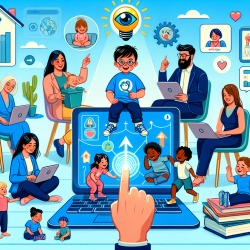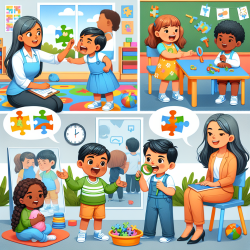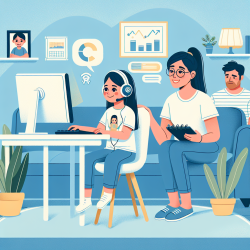Empowering Our Youth: Harnessing Resilience and Coping in Times of Crisis
The COVID-19 pandemic has undeniably impacted the mental health of adolescents, as evidenced by a recent study titled "Coping and Mental Health in Early Adolescence during COVID-19." This research highlights the significant increase in mental health symptoms among youth during the pandemic and underscores the importance of self-efficacy and coping strategies in mitigating these effects.
Understanding the Impact
The study conducted by Hussong et al. (2021) involved 105 parent-child dyads and utilized multi-level modeling analyses to track changes in mental health symptoms before and after the COVID-19 outbreak. The findings revealed a notable increase in symptoms, which were more pronounced in adolescents with lower self-efficacy and those who relied on emotion-focused coping strategies.
Key Findings and Implications
Here are the critical insights from the study:
- Self-Efficacy as a Buffer: Adolescents with higher self-efficacy experienced a smaller increase in mental health symptoms during the pandemic. This suggests that fostering self-efficacy can be a protective factor against stress-related symptoms.
- Problem-Focused Coping: Engaging in problem-focused coping strategies, such as tackling problems head-on, was associated with reduced symptomatology. Encouraging youth to adopt these strategies can help them manage stress more effectively.
- Emotion-Focused Coping Risks: Adolescents who relied heavily on emotion-focused coping, such as seeking social support or expressing emotions, showed increased symptoms. This highlights the need to guide youth towards more adaptive coping mechanisms.
Practical Applications for Practitioners
Practitioners working with adolescents can leverage these findings to enhance their therapeutic approaches:
- Build Self-Efficacy: Encourage activities that promote self-efficacy, such as setting achievable goals and celebrating small successes. This can empower adolescents to feel more in control of their circumstances.
- Promote Problem-Solving Skills: Teach problem-solving techniques that help adolescents address stressors directly. Role-playing and scenario-based exercises can be effective in developing these skills.
- Educate on Coping Strategies: Provide education on the different types of coping strategies and their potential impacts. Encourage a balanced approach that includes both problem-focused and adaptive emotion-focused coping.
Encouraging Further Research
While this study provides valuable insights, it also opens avenues for further research. Understanding the long-term effects of the pandemic on adolescent mental health and exploring interventions that enhance self-efficacy and adaptive coping are critical areas for future exploration.
To read the original research paper, please follow this link: Coping and Mental Health in Early Adolescence during COVID-19.










